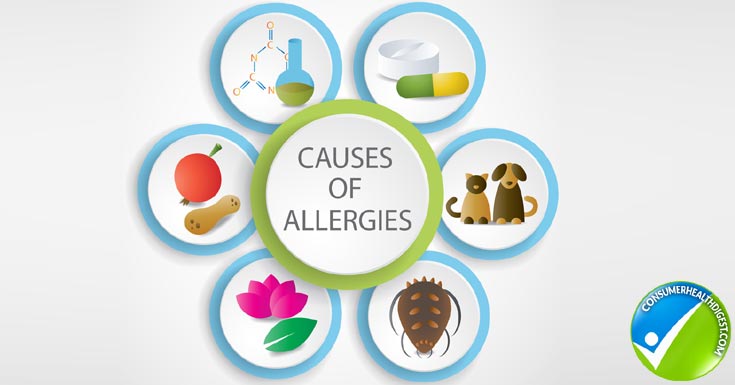What Causes Allergies To Act Up
If you've ever experienced itchy eyes, a runny nose, or relentless sneezing, you know how debilitating allergies can be. Even more so if you're allergic to something that's present year-round. Allergies can be brought about by a variety of factors, affecting people of all ages. In this post, we'll explore the different types of allergies, their symptoms, and treatments.
Allergies: The Basics
Allergies (also known as allergic diseases) occur when an individual's immune system reacts to a foreign substance, commonly referred to as an allergen. Allergens can enter the body in various ways, including inhalation, ingestion, or physical contact. When these allergens are detected, the immune system produces antibodies to fight them. This can lead to common allergy symptoms such as sneezing, itching, runny nose, and watery eyes.
Types of Allergies
The most common allergens include pollen, dust mites, pet dander, insect stings, mold, and certain types of food. These can cause a range of allergic reactions including hives, eczema, asthma, and anaphylaxis.
Here are some of the most common types of allergies:
Food Allergies
Food allergies occur when the immune system reacts to specific proteins found in certain foods. Common food allergens include peanuts, tree nuts, shellfish, fish, eggs, milk, and soy. Symptoms can range from mild itching or swelling to severe anaphylaxis, a life-threatening reaction involving difficulty breathing and a drop in blood pressure.
Seasonal Allergies
Seasonal allergies are caused by airborne pollen, usually from trees, grasses, and weeds. Symptoms include sneezing, runny nose, itchy or watery eyes, and sinus pressure. These allergies are often referred to as hay fever or allergic rhinitis.
Skin Allergies
Skin allergies can be caused by direct contact with certain substances. This type of allergy often leads to rashes, hives, or eczema. Common allergens include nickel, latex, and perfumes. Skin allergies can also be caused by sun exposure.
Insect Sting Allergies
Insect sting allergies occur when the immune system reacts to venom from bee, wasp, hornet, yellow jacket, or fire ant stings. Symptoms can range from mild swelling and itching to severe anaphylaxis.
Allergy Symptoms
Allergic reactions can be mild to severe. The severity of the reaction can depend on the type of allergen, the amount of exposure, and the individual's immune response. Here are some of the most common allergy symptoms:
- Sneezing
- Runny or stuffy nose
- Watery, itchy, or red eyes
- Itchy skin or hives
- Swelling of the face, lips, tongue, or throat
- Shortness of breath or wheezing
- Coughing or difficulty breathing
Allergy Treatments
Allergy treatments typically involve avoiding known allergens, medication, and immunotherapy.
Avoiding Allergens
Avoiding known allergens can help reduce allergy symptoms. For example, if you're allergic to pollen, it's important to limit your time outdoors during allergy season. If you're allergic to certain foods, it's important to read food labels carefully and avoid those foods.
Medication
Medication can help alleviate allergy symptoms. Antihistamines help control allergic reactions by blocking the effects of histamines (a substance released during an allergic reaction). Nasal steroids can help reduce inflammation in the nasal passages, while decongestants can help reduce stuffiness.
Immunotherapy
Immunotherapy, also known as allergy shots, can help reduce the severity of allergic reactions over time. This treatment involves injecting small amounts of the allergen into the body to help the immune system build up a tolerance. Immunotherapy is typically used for severe allergies and takes several months to years to complete.
Conclusion
Allergies can be frustrating and even life-threatening in some cases. Identifying allergens and taking steps to avoid them is critical for managing symptoms. If you suspect that you have an allergy, it's important to consult with an allergist to get an accurate diagnosis and develop a treatment plan.

Types of Allergies
As we discussed earlier in this post, there are various types of allergies that can affect people. It's important to be aware of them, so you can take steps to avoid allergens and manage symptoms. Here are some of the most common types of allergies:
- Food allergies
- Seasonal allergies
- Skin allergies
- Insect sting allergies
If you suspect that you have an allergy, consult with your healthcare provider to get an accurate diagnosis and develop a treatment plan.

Are You Suffering from Allergies?
If you're experiencing allergy symptoms, it's important to take steps to manage them. Avoiding known allergens, taking medication, and undergoing immunotherapy can all help alleviate symptoms.
If you suspect that you have an allergy, speak with your healthcare provider to get an accurate diagnosis and develop a treatment plan. Together, you can work to manage symptoms and improve your quality of life.